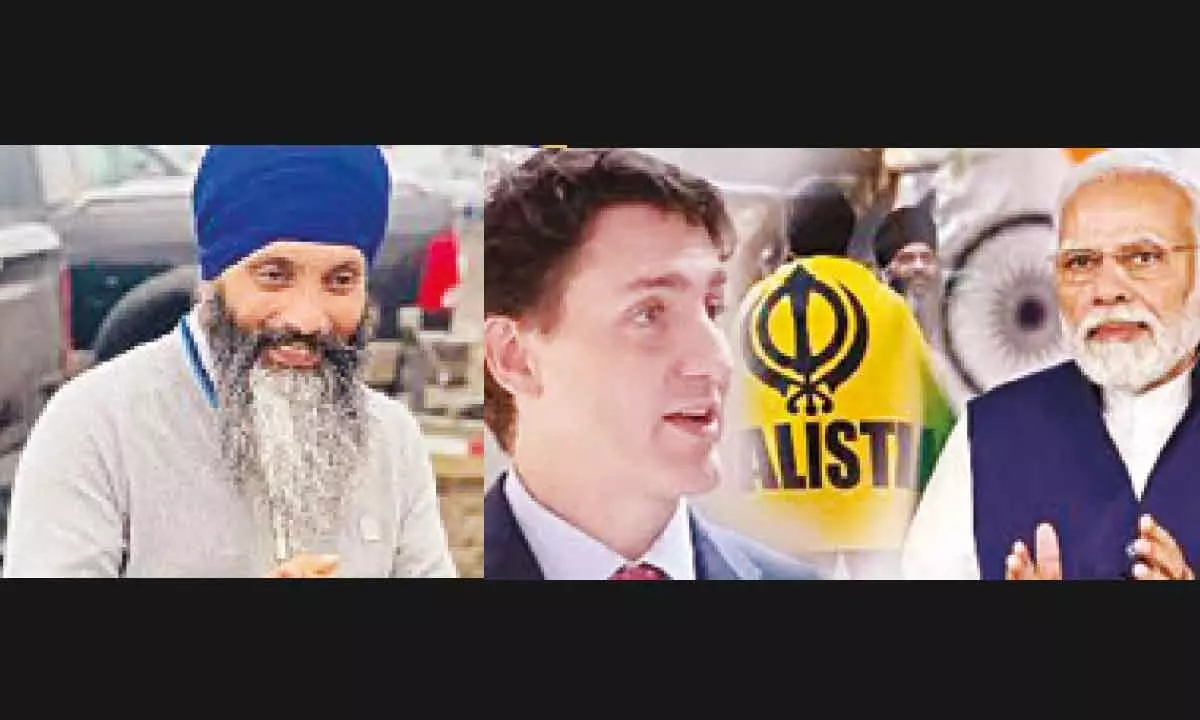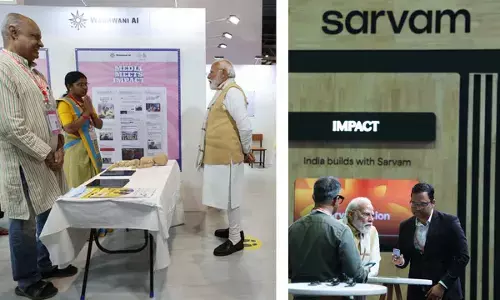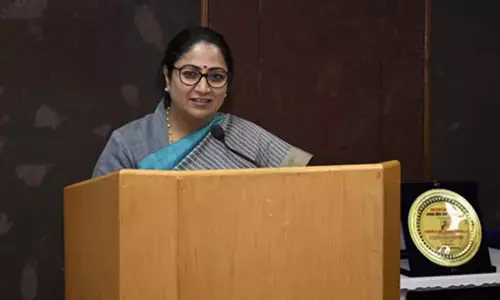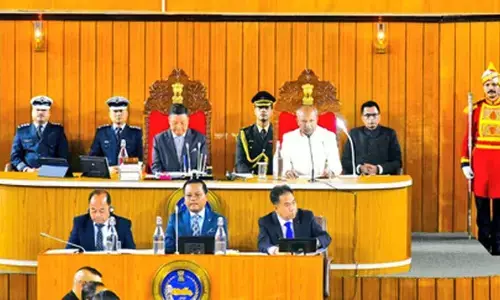Trudeau complicates West’s efforts to rein in China

It’s highly improbable that Canada’s allies will cut ties with India
Trudeau also made his allegations about India’s involvement in Nijjar’s death to US President Joe Biden, British Prime Minster Rishi Sunak and French President Emmanuel Macron at the G20. This complicates efforts by Canada and its allies to improve relations with India in a strategic attempt to counter-balance what they view as an increasing threat posed by China. In response to China’s growing might, Canada unveiled its Indo-Pacific strategy in 2022 that characterized China as a “disruptive power” and underscored the Canadian commitment to strengthening ties with countries in the Indo-Pacific region. That strategy has a particular focus on India
Prime Minister Justin Trudeau’s allegation that the Indian government was involved in the assassination on Canadian soil of Hardeep Singh Nijjar, a Sikh independence advocate, will undoubtedly erode Canadian-Indian relations at a time when the West is trying to appeal to India.
Trudeau has made international headlines with his allegation in Parliament this week that India had a hand in the murder of Nijjar, who was gunned down last June in the parking lot of a gurdwara — a Sikh place of worship — in the Vancouver suburb of Surrey.
Both government and opposition parties have unanimously condemned India, saying the allegations suggest an unacceptable violation of Canadian sovereignty.
Foreign Affairs Minister Mélanie Joly has announced the expulsion of Indian diplomat Pavan Kumar Rai. The federal government says Rai led the Canadian branch of the Research and Analysis Wing, India’s foreign intelligence service. Joly says she’ll raise the issue with the G7 foreign ministers in New York. India, meantime, has denied the allegation and expelled a Canadian diplomat in retaliation.
Tense relations further sour
Tensions between Canada and India were apparent when Trudeau recently visited New Delhi for the G20 summit.
Indian Prime Minister Narendra Modi had raised concerns to Trudeau about Sikh Khalistani protests in Canada. The Sikh independence movement is considered a threat to Indian territorial sovereignty and integrity. Canada has the largest Sikh diaspora outside Punjab, and activists like Nijjar have been staging demonstrations to demand an independent Khalistan state separate from India. Trudeau defended these demonstrations as freedom of expression, assembly and peaceful protest.
But Trudeau also made his allegations about India’s involvement in Nijjar’s death to US President Joe Biden, British Prime Minster Rishi Sunak and French President Emmanuel Macron at the G20. This complicates efforts by Canada and its allies to improve relations with India in a strategic attempt to counter-balance what they view as an increasing threat posed by China.
In response to China’s growing might, Canada unveiled its Indo-Pacific strategy in 2022 that characterized China as a “disruptive power” and underscored the Canadian commitment to strengthening ties with countries in the Indo-Pacific region. That strategy has a particular focus on India.
Trade between India, Canada
Canada has also committed to improving trade relations with India by negotiating a free-trade agreement. There have been nine rounds of negotiations, but those talks stopped amid allegations about India’s role in Nijjar’s death. Canadian Trade Minister Mary Ng cancelled her planned visit to India in October.
Despite the importance countering China’s influence, the Indian government’s authoritative tendencies, human rights violations and interference in Canadian internal affairs have created obstacles to Ottawa’s efforts to improve the India-Canada relationship.
It’s highly improbable that Canada’s allies, including the U.S., the U.K. and France, will cut ties with India due to Trudeau’s allegations. India is simply too important for strategic and economic reasons.
India holds significant importance when it comes to countering China’s geopolitical influence. Ottawa has previously indicated India was a “priority” market for Canada; in 2022, India was Canada’s 10th largest trading partner.
Strategic relations between India, US
A strategic agreement between the U.S. and India is primarily aimed at tempering China’s growing influence and has been called a partnership between “the world’s oldest democracy” and “the world’s largest democracy” to highlight shared democratic values.
But the Modi government has been harshly criticized for democratic backsliding and authoritarian tendencies, including fostering Hindu extremism, violating minority and human rights and cracking down on the media, academia and civil society.
Nonetheless, Biden refrained from criticizing Modi publicly when he visited the White House in June despite being pressured to raise human rights issues with the Indian leader.
Seventy-five U.S. congressional representatives wrote a letter to Biden urging him to do so. Half a dozen Democrats also boycotted Modi’s speech to U.S. Congress. But the Biden administration reportedly believes expressing concerns about Modi’s autocratic policies would harm the relationship.
India’s Prime Minister Narendra Modi offers a toast during a State Dinner with President Joe Biden at the White House in Washington in June 2023. (AP Photo/Susan Walsh)
Holding India accountable
Indeed, Canada’s allies have often turned a blind eye to Modi’s misdeeds due to strategic considerations. But it’s now time for Canada and its allies to assertively hold India accountable for its actions. The strategic partnerships formed between western nations and India were originally founded on the premise of shared democratic values. As the world’s most populous country, with the fifth largest economy and second-largest military, India is still an invaluable partner to the West.
But if India is diverging from these apparent shared principles, it’s essential to maintain the integrity of these partnerships by ensuring that Indian officials remain committed to democratic ideals and human rights. Even if Canada’s allies won’t publicly back Trudeau, the federal government should stay committed to its core values by ensuring India faces consequences for its authoritarian actions.
(Writer is Assistant Professor in Political Science, Thompson Rivers University, Kamloops, British Columbia, Canada)











